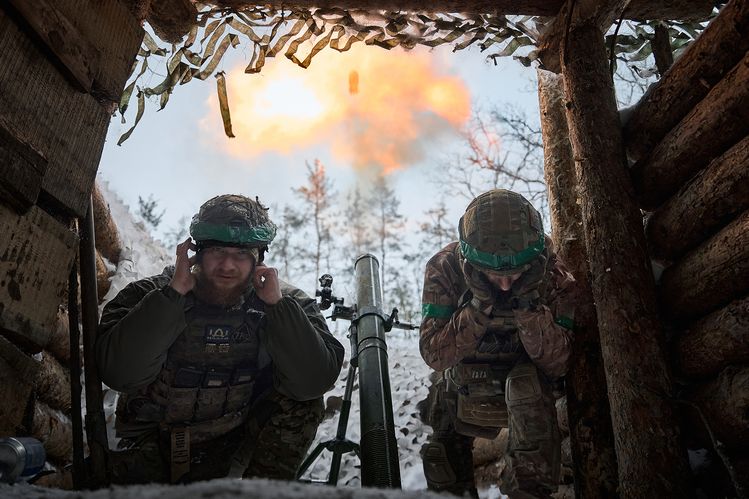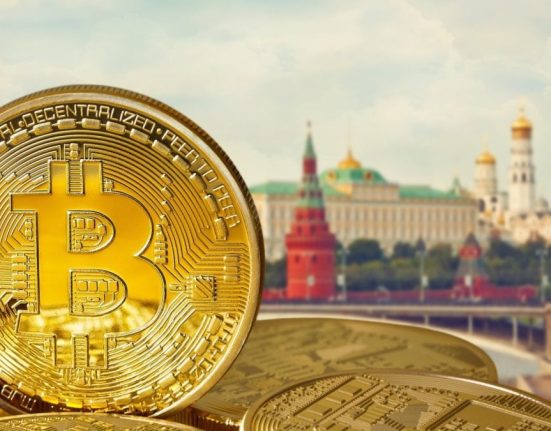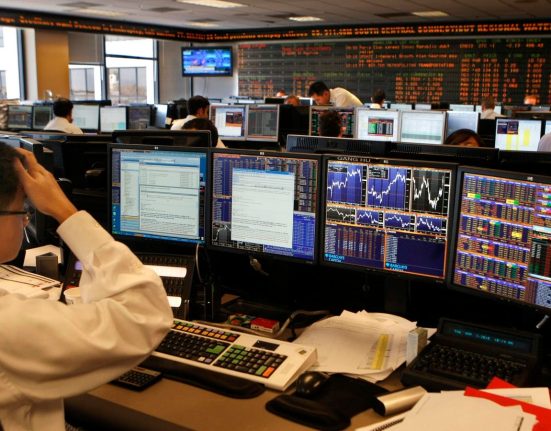Two years on from Russia’s invasion of Ukraine and global finance firms are still feeling the impact of the fallout, with many still scrambling to untangle their businesses from the region.
The outlook for international finance giants in Russia remains on a knife-edge, as the country continues to face a host of challenges. These range from continuing sanctions and new regulation to concerns about sectors such as ESG and crypto.
However, Ukraine’s authorities are confident that the macro-economic environment has now stabilised. The state’s budgetary deficit has fallen from $5bn to $3.5bn a month. Inflation has come down from 26.6% to 5.1%.
“Today, the Ukrainian government is entering the third year of the war with a huge, invaluable experience and foreseeing even greater challenges,” the country’s minister of finance Sergii Marchenko tells Financial News.
“Bitter lessons will shape the future of governance and financial approaches, not just for Ukraine. However, our stability is a fragile equilibrium that we are balancing using existing and new tools. It is unsustainable, but we are trying our best during this period of uncertainty,” he adds.
In and out
About 90% of enterprises in Ukraine suspended their operations as war broke out in February 2022, according to the country’s finance ministry. Some of the City’s biggest names, including Goldman Sachs, JPMorgan, PwC and KPMG, announced the following month that they would leave Russia.
“Many international businesses have withdrawn from Russia and we support UK businesses in doing so,” a spokesperson for the UK Treasury says.
But progress has been slow for some and tough decisions remain 24 months later. Brewing giant Carlsberg only terminated its Russia business six months ago.
It took Yandex — Russia’s Google — some 18 months to sell all its business in the country; the Dutch- registered firm’s $5.2bn deal on 5 February was the largest corporate exit since war broke out.
The UK branch of Russian bank VTB Capital collapsed due to sanctions. But it still paid City staff £6.6m last year.
Its administrators have now warned it will take at least another year to wind down the lender.
READ Collapsed Russian bank VTB Capital pays City staff £6.6m
“Conversations are still going on: is it still okay to do business in Russia going forward?” says Matthew Nunan, a financial services regulation partner at law firm Gibson, Dunn & Crutcher.
“People thought it would be a quick war — won or lost… Decisions made two years ago you now have to assess.”
“You might have a massive cost invested in that country for years that’s worth nothing now,” he adds. “However it resolves, there will still be a residual feeling of risk around those locations… Maybe if things resolve, there will be a first-mover premium.”
Penny Miller, who heads the global financial services regulatory practice at Simmons and Simmons, says the Russian government is making wholesale exits from the country difficult.
“The Russian Courts are giving judgments that usually would be unthinkable: freezing assets far exceeding the value of debts, seizing client money held by banks and enforcing against companies that have no relationship whatsoever with the Russian claimant. It is a trend to watch closely in 2024.”
Stiff sanctions
Russia’s lenders are also still functioning profitably, despite multiple waves of sanctions.
Russian banks reported record profits of 3.3tn rubles ($37bn) in 2023, according to the Russian Central Bank — more than 15 times 2022’s sanction-battered 200bn ruble year.
VTB, Russia’s second largest bank, posted record profit for 2023 on 20 February of 432.2bn rubles, as bankers have boosted lending to both consumers and corporates amid 16% interest rates.
Europe’s banking sector has held up, according to European Banking Authority chair José Manuel Campa.
“Two years after Russia’s military aggression against Ukraine, the global community still grapples with the consequences of the unprecedented humanitarian tragedy and an uncertain economic landscape. The economic consequences of the war have been widespread, from pressure in inflation to disruption in energy markets and altering global value-added chains.
“Despite such an unstable geopolitical environment, the EU’s banking sector continues to prove resilient, with high capital and liquidity buffers, and providing support to those most affected by the war.”
But a tougher approach could be on the way in the UK. Last year’s Economic Crime and Corporate Transparency Act gave the Office of Financial Sanctions Implementation new powers to enforce sanctions.
OFSI continues to staff up: Financial News revealed in August that it had doubled its headcount since the hostilities began.
City law firm Cooke, Young & Keidan says financial services firms often take an “extreme, risk-averse view of any business relationship related to Russia”. But they are still seeing judgments on sanctions come through regularly — around once a fortnight.
“There was this three weeks of absolute craziness [when sanctions first came in],” says Gibson Dunn’s Nunan. “What does this mean? How does this work? We had lots of conversations with banks, like: ‘What happens if there is a transaction in progress and in the middle of it someone is sanctioned?’”
In December 2023, the UK government warned financial services firms that they risked falling foul of sanctions when processing payments for items that can be used for both civilian and military applications. For Nunan, the war will bring lasting prominence for sanctions issues.
“Sanctions seem to be a real part of life going forward,” he says. “I think there is a longer-term recognition that sanctions are a big thing now.”
Dodgy deals
There are also other potential risks going forward.
“Banks will continue to face challenges,” Manuel Campa says. “Cyber risks threatening information security and business continuity and increases in credit risk need to be continuously monitored to ensure financial stability.”
The conflict has also brought tighter scrutiny of any mergers that Russian financiers might wish to do. But this has not killed off the deal pipeline from the region entirely.
The National Security and Investment Act 2022 gave the UK government more powers to block takeovers by foreign powers.
However, it only rejected five deals that year, only one of which involved a Russian oligarch, according to analysis by law firm Osborne Clarke.
Cabinet Office figures show Russia ranked just tenth by percentage of the ‘call in’ notices given to put deals under more intense scrutiny between 1 April 2022 to 31 March 2023.
A swift response
In February 2023, a year after Russia marched into Ukraine, the US and UK took more Russian lenders out of the Swift international payments network.
The likes of online bank Tinkoff suspended euro trading as a result, but the firms have largely downplayed the significance of the move, talking up new solutions they had devised to minimise the fallout.
Swift declined to comment.
Also last year, a new EU taxonomy classified nuclear and natural gas as sustainable investments in a bid to be less dependent on Russian supplies.
“It was quite controversial as to whether those two should be deemed sustainable,” says Mikkel Bates, regulatory manager at FE fundinfo.
READ Bill Browder: Western sanctions on Russia are ‘still not enough’
France and Germany were supporters, the former having a large nuclear sector, the latter being a large buyer of natural gas.
“I don’t think it was anything that was universally agreed and whether it was science-based is questionable,” says Bates.
Bates says the taxonomy widens the investable universe for fund managers: “I don’t know whether natural gas will continue to be a sustainable activity when things quieten down,” he adds.
Debate also rages about whether defence stocks should now fall with an ESG framework. That would allow international investors to contribute more freely to the region’s security.
Defence spending in Ukraine rocketed to 30% of GDP in the wake of the conflict, according to Ukraine’s finance ministry. War bonds have been issued, raising more than $24bn since February 2022.
Crunch time for crypto
Digital assets also became a major battleground in the wake of the invasion. The US Treasury has repeatedly warned that crypto could be used to evade sanctions. It continued to blacklist bitcoin and ether addresses throughout 2023.
Some of the biggest names in the sector have also been called out for their ties to the region.
The Guardian reported in December that Russian banker Mikhail Klyukin, who was hit with US sanctions, had sold a stake in crypto custodian Copper worth £15m. The firm is run by Russia-born Dmitry Tokarev, who at the time branded the war “inexcusable”.
Revolut’s chief executive Nikolay Storonsky was also born in Russia, but renounced his citizenship towards the end of 2022. The firm set up a scheme to help Ukrainian refugees access accounts, but had to axe it after just six weeks to stop users exploiting referral fees.
At the time of the invasion, bitcoin stood at around $39,000. It has been on a roller-coaster ride since, but was hovering around $51,000 at the time of writing.
Fighting for the future
“Despite all forecasts, Ukraine has maintained financial stability and continues to be resilient,” Ukrainian finance minister Marchenko says.
Attention is now turning in the third year of the war to political efforts to rebuild Ukraine and to shore up a victory, as US lawmakers continue their fraught battle to release a $95bn aid package.
“Shifts in the political landscape around the world are already affecting our situation,” Marchenko says. “It is crucial to recognise that now, more than ever, unity is imperative. The potential cost of democratic failures is exceedingly high.”
To contact the author of this story with feedback or news, email Justin Cash







